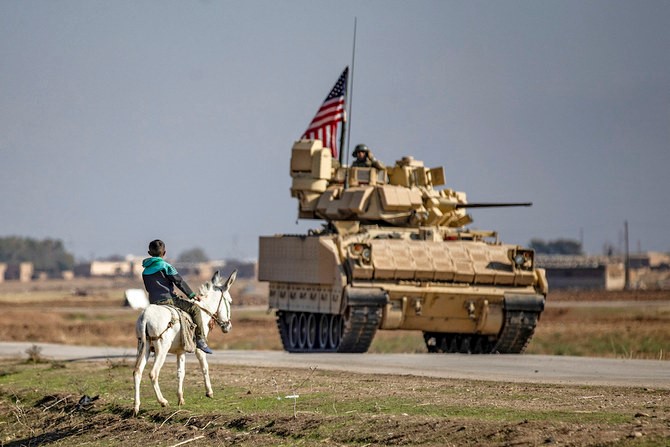The United States government is seeking to remove families of its citizens from detention camps in Syria holding former Daesh members, including children who were “cruelly” separated from their mothers.
This family consists of 10 people, including Brandy Salman and her nine children, who are being held by the Kurdish Syrian Democratic Forces in northern Syria. Salman, who was brought to Syria by her Turkish husband to join Daesh in 2016, is now 49 years old. The family was detained in Baghuz, Syria in 2019, and one of their sons, who was 17 at the time, was immediately separated from the family.
Salman is the sister of Rebecca Jean Harris, who said the FBI contacted her in 2019 seeking information about the family, after which Salman cut off communication with her. Salman has also rarely communicated with his family since being detained, and his extended family has not even seen him since 2006.
The US government has returned a number of its citizens from detention camps in northern Syria since 2016, including 25 children. Despite this, around 10,000 foreign nationals remain in the camps after Daesh territory fell in neighboring Syria and Iraq.
The SDF, which is a regional ally of the US although not internationally recognized as a government, currently holds around 60,000 people for links to Daesh, including a growing number of children. Al-Hol, the largest camp, holds around 50,000 people, with nearly half of its prisoners under 12 years old.
Despite this, the SDF does not keep accurate records of everyone it detains, and many Western governments are reluctant to cooperate with the identification process or even refuse to return their citizens.
This year alone, around 2,500 people have been returned from SDF detention. In 2022, about 3,000 people were returned, a larger number than the previous three years combined, according to the US Department of State.
The US has played a leading role in facilitating the return of foreign nationals to other countries. In August, the US took 95 Kyrgyz women and children back to their home country, but some have criticized the US’s slow response in returning some of its own citizens, including Salman’s family.
Letta Tayler, a researcher at Human Rights Watch who has worked with members of Salman’s family, said: “It’s great that the US is acting to return this family, but why is this process so slow given the horrific conditions these US citizens live in? That’s a worthy question answered by the US government.”
Ian Moss, deputy coordinator for counterterrorism at the US State Department, said that he met with Salman and his five children in July, and Salman expressed his desire to return home.
One of Salman’s children, interviewed by Tayler and UN Special Rapporteur on Counterterrorism and Human Rights Fionnuala Ni Aolain, said that the family had been told by their father in 2016 that they were going camping. After several days of travelling, they confessed that they had crossed from Turkey to Syria, after which, the mother kept the children inside out of fear.
The child, now 17, said that after his family was arrested and his oldest brother was separated from them, he was allowed to live with his mother and siblings in Al-Hol until 2020, when he was arrested by guards in the market area and was eventually transferred with a number of other teenage boys to the camp’s Houry center, which focuses on deradicalizing suspected young extremists.
In a video about children in Syrian detention camps released by HRW, the child appears with his identity hidden, saying: “It’s not just me. We are a lot of children (here), you know. Nobody wants to living, like growing up here with nothing to do. That’s how we all feel.”
Ni Aolain later released a report on the forced separation of teenage boys from their mothers in the camps, saying: “Every woman she met identified the kidnapping and disappearance of their young and teenage boys as a major concern.”
In relation to Salman’s son, whose identity has been kept secret and who has only seen one sibling since being separated, Ni Aolain said he expressed “great anxiety and worry” about communicating only with his mother through infrequent letters sent via the Red Cross.
He has spent time in detention painting pictures of his encounters with his mother, and Ni Aolain said: “He looks like a teenager, except he was caught in a very coercive situation and spent time in an abusive situation.


